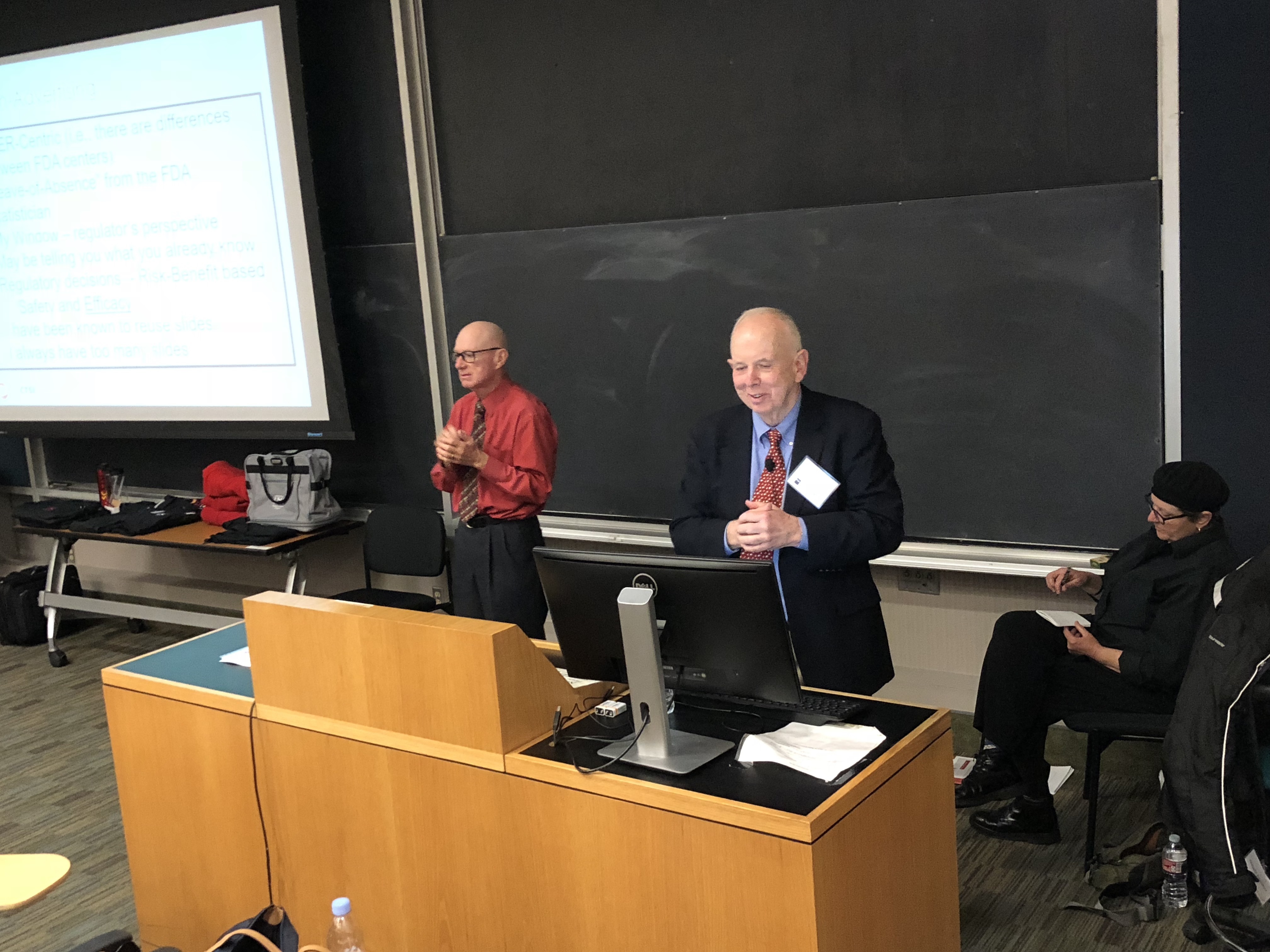Guiding Role of Regulatory Science in Drug and Device Candidate Development Explored in Recent Regulatory Science Bootcamp
Lecturers at the latest meeting of the ongoing seminar series discussed the role of regulatory science in shaping development goals and clinical trials for medical device or drug candidates.
The regulatory environment and requirements of the FDA and other institutional bodies governing clinical research cannot be considered outside the scientific and experimental questions about a product candidate, but should be part of the clinical study design process from the start, according to regulatory science professionals.
Representatives offering perspectives on clinical trial design from both the pharmaceutical industry, the regulatory consulting industry, and the FDA joined USC lecturers at the recent Regulatory Science Bootcamp, held March 8 on the USC Health Sciences Campus.
Guiding development of drugs and devices
"The regulatory environment and strategy should drive how a drug or medical device is developed, including the design of clinical trials and program," said bootcamp organizer Eunjoo Pacifici, PharmD, PhD, Associate Director of Graduate Programs and Assistant Professor of Clinical Pharmacy at the International Center for Regulatory Science. "For example, if researchers would like to take advantage of various expedited and accelerated regulatory pathways offered by the FDA, they will need to proactively consider target indication and population of a product candidate within this context.”
Unusually, the recent seminar brought in the viewpoint from inside the FDA, the primary regulatory body in the United States.
"Attendees of previous bootcamps have suggested that we invite the FDA itself to provide insight into the agency's perspective on clinical trial design and how they evaluate the studies and their data," said bootcamp organizer Nancy Pire-Smerkanich, DRSc, Assistant Professor of Clinical Pharmacy at the International Center for Regulatory Science.

Stephen Wilson, DrPH (middle)
Bootcamp organizers invited presenter Stephen Wilson, DrPH, a 30-year veteran of the FDA's Center for Drug Evaluation and Research. In his talk, "The Evolution of a Well-Designed Clinical Trial," Wilson contextualized the current FDA regulatory environment within the history of the agency's requirements and regulations for trial design.
Wilson and other lecturers discussed trial design, including current and typical problems, questions, and controversies.
Classical and novel trial designs
Steve Snapinn, PhD, Vice President, Global Biostatistical Science for the biotechnology company Amgen, provided an overview of trial design approaches. His talk, "Classical and Novel Designs Used in Regulatory Approval," covered issues in classical designs of phase I, II, and III trials. His discussion of novel designs covered concepts and rationales for the use of adaptive trial designs, platform and umbrella designs, program decision-making approach, and designs for special populations.
For the first time in the seminar series, a bootcamp presenter delved into the particular considerations and problems associated with trials of medical devices. Keith Morel, PhD, Vice President of Regulatory Compliance for Qserve Group US, a consulting group specializing in medical device regulatory compliance. He discussed the regulatory and development differences between drugs and devices, unique challenges associated with device trials, issues such as sham surgery, and changing EU requirements in clinical data and evaluation.
The day-long bootcamps present lecturers from USC, CHLA, pharmaceutical and clinical research industry, and government to discuss topics and changes in regulatory science. The bootcamps, co-sponsored by the USC International Center for Regulatory Science, the Southern California Clinical and Translational Science Institute, and the Greater Los Angeles CTSA Consortium, continue to be sold-out events, with attendees including clinical researchers and students from Southern California and other areas of the state.
The next bootcamp will be announced by the USC International Center for Regulatory Science. Also check the Events & Deadlines section of the SC CTSI website for registration details.
Written by Paul Karon



